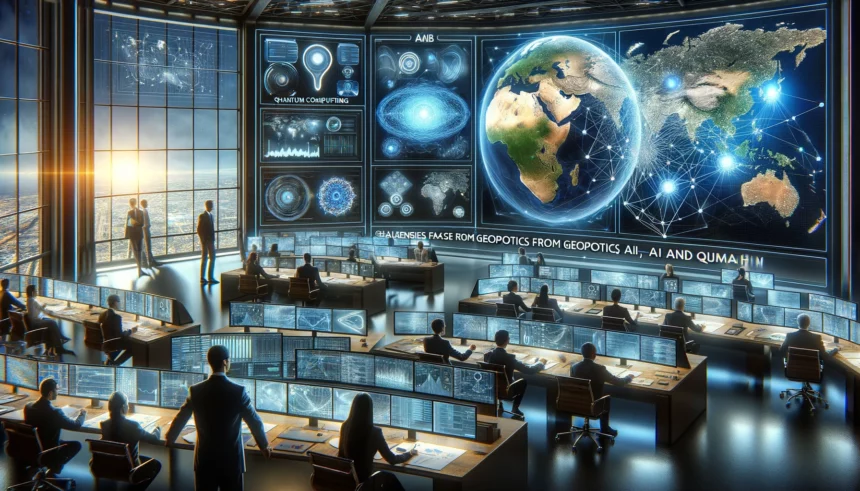In a world where technology is advancing by leaps and bounds, businesses are facing an array of new challenges that intertwine geopolitics, regulations, and cybersecurity. Understanding these risks is vital for any organization looking to thrive in a complex global environment. Here’s a closer look at some of the top risks and what companies can do to stay ahead.
Geopolitical Tensions Impact Global Supply Chains
The conflict in Ukraine highlighted a critical weakness in global supply chain management. Many businesses were caught off guard when essential supplies like semiconductor chips and energy sources were disrupted. This situation sheds light on the intricate web of dependencies in manufacturing processes, from smartphones to automobiles. To mitigate such risks, companies must develop robust contingency plans and diversify their supplier networks to ensure resilience against geopolitical shocks.
The Double-Edged Sword of AI in Security
Artificial Intelligence (AI) holds the promise of transforming cities into smarter, more efficient habitats. As AI predicts traffic flows and manages utilities, it also introduces significant vulnerabilities. The data powering AI systems must be safeguarded to prevent manipulations that could lead to widespread misinformation or system failures. Businesses need to bolster their cybersecurity measures and ensure the integrity and confidentiality of the data used by AI systems.
Environmental and Security Concerns with Quantum Computing
While still in its infancy, quantum computing presents both incredible opportunities and significant risks. Its potential to process data at unprecedented speeds could revolutionize industries but also exacerbate energy consumption and cybersecurity challenges. Like the debates surrounding electric vehicles, the environmental impact of advancing technologies must be carefully considered. Businesses should evaluate the broader implications of quantum computing on energy use and cybersecurity.
Societal Impacts of Disruptive Technologies
The fear that AI could displace millions of jobs is not unfounded. Technological disruptions, much like the AI revolution, require careful management to mitigate societal impacts. It’s crucial for businesses and governments to prepare for these changes by fostering skills that are adaptable and future-proof, such as creativity and flexibility. This proactive approach will help society adjust to new realities as old jobs disappear and new opportunities arise.
Aligning Technology with Regulatory Demands
Regulatory environments are struggling to keep pace with technological advancements. Laws like GDPR in Europe and varying state regulations in the US create complex landscapes for businesses to navigate. This is particularly burdensome for small businesses that may lack the resources to manage compliance effectively. Collaboration between governments and businesses is essential to develop realistic regulatory frameworks that support innovation while ensuring compliance and security.
Embracing Change and Fostering Collaboration
Open-mindedness and the willingness to embrace change are fundamental for businesses aiming to navigate the intricate interplay of technology, geopolitics, and regulations. Establishing partnerships with think tanks and experts in AI, quantum computing, and cybersecurity can provide companies with essential insights and strategies. Regular collaborations can help businesses stay adaptive and responsive to rapid societal and technological shifts.
In conclusion, by understanding these interconnected risks and fostering a culture of innovation and collaboration, businesses can better prepare for the challenges of a rapidly changing world. The journey ahead is complex, but with the right strategies and partnerships, companies can navigate this landscape successfully.
















